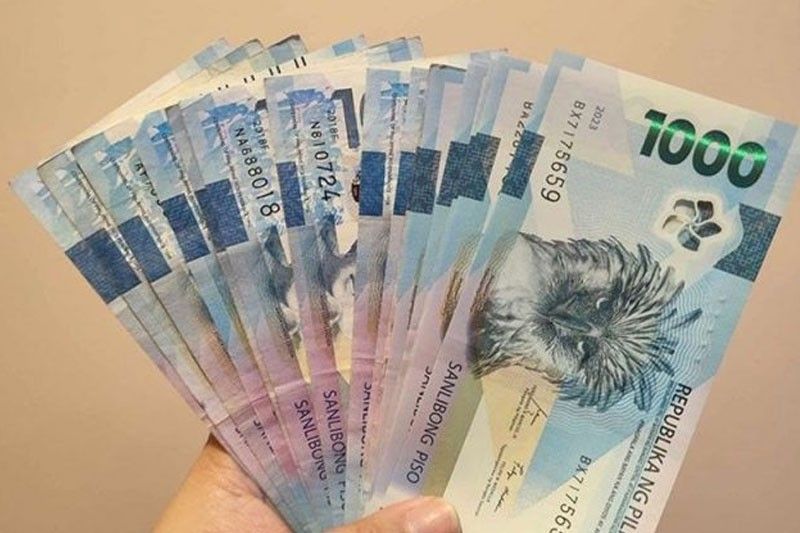Government posts P88 billion surplus
Louise Maureen Simeon – The Philippine Star March 16, 2024 | 12:00am First budget surplus since april 2023 MANILA, Philippines — The Marcos administration snapped eight consecutive months of budget deficit after it recorded a surplus of P88 billion in January as revenue collections outpaced spending. Data from the Bureau of the Treasury showed that […]


Louise Maureen Simeon – The Philippine Star
March 16, 2024 | 12:00am
First budget surplus since april 2023
MANILA, Philippines — The Marcos administration snapped eight consecutive months of budget deficit after it recorded a surplus of P88 billion in January as revenue collections outpaced spending.
Data from the Bureau of the Treasury showed that the government posted a higher budget surplus of P88 billion in January, nearly double the P45.7 billion recorded in the same period last year.
This is also the first time in eight months that the government reverted back to a surplus after the P66.8 billion excess in April 2023.
The January surplus was also the highest recorded since the Treasury started keeping track of cash operations data of the government in 1986.
A budget surplus means that the government earned more than what it spent during a given time. The extra money can either be used to pay off debts or be invested in other programs.
ING Bank senior economist Nicholas Mapa said the strong spending alongside better revenue collection is a good development for the country.
If the government will be counted on to support sagging economic growth momentum, Mapa said it would only be feasible if accompanied by commensurate gains in revenue collection.
“Revenue collection will be key. If fiscal authorities can sustain this type of collection, then this opens the door for a quicker fiscal consolidation alongside modest support for growth,” Mapa said in a Viber message.
To help chase fiscal consolidation in a more timely manner, Mapa maintained that fresh taxes would be one way to do this.
However, Finance Secretary Ralph Recto has declared that there will be no new taxes, at least for the year, with the government bent on focusing on tax administration instead.
“The last time the debt-to-GDP (gross domestic product) ratio was this high, the Philippines needed to resort to an increase in the VAT (value-added tax),” Mapa said.
“Without it, we could likely only see a modest decline in overall debt levels,” he said.
As of end-2023, the share of national debt to the country’s output eased to 60.2 percent, but is still slightly above the internationally accepted threshold of 60 percent.
Reducing the ratio would mean that economic growth must outpace the level of borrowings of the Philippines.
Jonathan Ravelas, senior adviser at professional service firm Reyes Tacandong & Co., said sustaining the budget surplus may not be a walk in the park.
“With the dry season in place, I am expecting the government to take advantage of this for infrastructure spending to support growth,” Ravelas said.
“Most of our collection is also during the second quarter and the higher costs could also impact government spending,” he said.
Total revenue collection in January jumped by 21 percent to P421.8 billion as against the P348.2 billion in the same period last year, with the Bureau of Customs (BOC) and Bureau of Internal Revenue (BIR) both posting increases.
The bulk or 91 percent of the revenues came from tax collections at P385.2 billion, up by 25 percent.
BIR’s haul jumped by 31 percent to P308.4 billion while Customs saw its collection inch up by four percent to P73.4 billion from P70.6 billion.
The Treasury said BIR’s revenue performance was driven by the shift in VAT remittance from monthly to quarterly, pushing over the crediting of the fourth quarter of 2023 collections to January this year.
On the other hand, BOC’s improved system of determining the customs value of imported goods, strengthened border protection and concrete trade facilitation efforts contributed to its higher tax take.
Non-tax collections, however, declined by almost 10 percent to P36.6 billion in January.
Income generated by the Treasury went down by 5.7 percent to P16.7 billion due to lower income from interest on government deposits and investments.
Collection from other offices including privatization proceeds and fees and charges for the month also declined by 11 percent to P19.9 billion amid reduced collections from the government’s share from Malampaya proceeds.
On the other hand, government spending in January went up by 10 percent to P333.9 billion from P302.4 billion in 2023.














